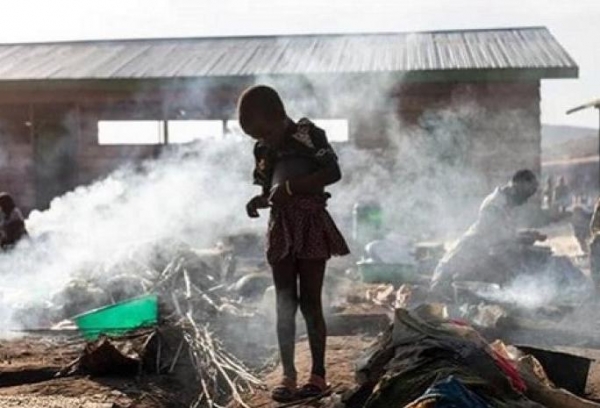Since July, about 27.000 people - mostly women and children – sought refuge and assistance in the provinces of Mai-Ndombe and Kwilu, while another 2.600 civilians crossed the Congo River in canoes to secure themselves across the border. The root cause of the clashes between the Teke and the Yaka communities can be traced in disputes related to the payment of taxes on the use of agricultural land, but reveals deeper and complex reasons, especially related to a sense of belonging to the territory: the members of the Teke community believe that they are the real natives of the region.
According to the UNHCR estimates, since the outbreak of the hostilities more than 142 people have been killed – including the head of the Yaka community and his wife – and about 175 houses have been burned or destroyed. Thousands of civilians have been forced to leave their homes, their activities and, in many cases, their families. The picture shown by Angele Dikongue-Atangana, the UNHCR representative of the DRC, is tragic: not only is the violence raging and generating thousands and thousands of displaced, but the heavy rains make their escape complex and dangerous.
On Monday, the government spokesman Patrick Muyaya stated that all necessary measures had been taken to ensure the safety of civilians and to put an end to the violence. The provincial governments of Mai-Ndombe and Kwilu have established a crisis management committee, while the border authorities of the Republic of Congo provide assistance and record new arrivals with the UNHCR support.
Dikongue-Atangana also highlighted that the population is living in precarious conditions: there have been numerous cases of malnutrition and there are no suitable places to accommodate such a large number of refugees. For these reasons, the international community must intervene to end the violences and to support the initiatives of the UNHCR and the authorities to alleviate the suffering of the affected population
To read more, please visit:
- DR Congo sees deadly surge in intercommunal violence | | 1UN News
- Violence erupts in DR Congo’s west as nearly 30,000 flee clashes - Democratic Republic of the Congo | ReliefWeb
- Democratic Republic of Congo: Humanitarian Aid is Needed after Clashes Intensified between the Teke and Yaka Communities - Human Rights News (ghrtv.org)
by Amalia Ranieri




